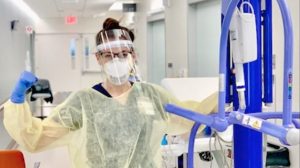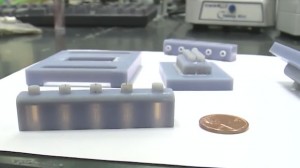NEW YORK (Reuters Health) – Imipenem-resistant Pseudomonas aeruginosa (IRPA) is an emerging problem and, in the ICU, patient-to-patient transmission may occur, even in the absence of an outbreak, results of a study indicate.
But while patient transmission is important, “a patient’s endogenous flora is also important” in ICU acquisition of IRPA colonization, the study team notes in the September 15th issue of The Journal of Infectious Diseases.
Dr. J. Kristie Johnson from the University of Maryland School of Medicine in Baltimore and colleagues analyzed the molecular epidemiology of patients who acquired IRPA by use of perianal surveillance cultures over a period of 5 years.
The cohort consisted of 7071 patients admitted to the medical and surgical ICUs at the University of Maryland Medical Center between 2001 and 2006. During the study, 149 patients acquired IRPA. In 38 patients (26%), an imipenem-susceptible P. aeruginosa isolate was obtained from an ICU admission surveillance culture.
Forty-six (31%) of the 149 patients with IRPA acquisition acquired an IRPA strain that was found on pulsed-field gel electrophoresis to have a genetic profile similar to that of another patient’s isolate. These patients were considered cases of patient-to-patient transmission. In addition, 28 patients (19%) acquired IRPA colonization by endogenous flora.
This study, the researchers point out, is one of the first to investigate the causal role of antibiotic selective pressure versus patient-to-patient transmission in IRPA acquisition.
The current findings, Dr. Johnson and colleagues conclude, suggest that a “multifaceted approach is needed to control the emergence of IRPA.”
Reference:
J Infect Dis 2009;200:900-905.




